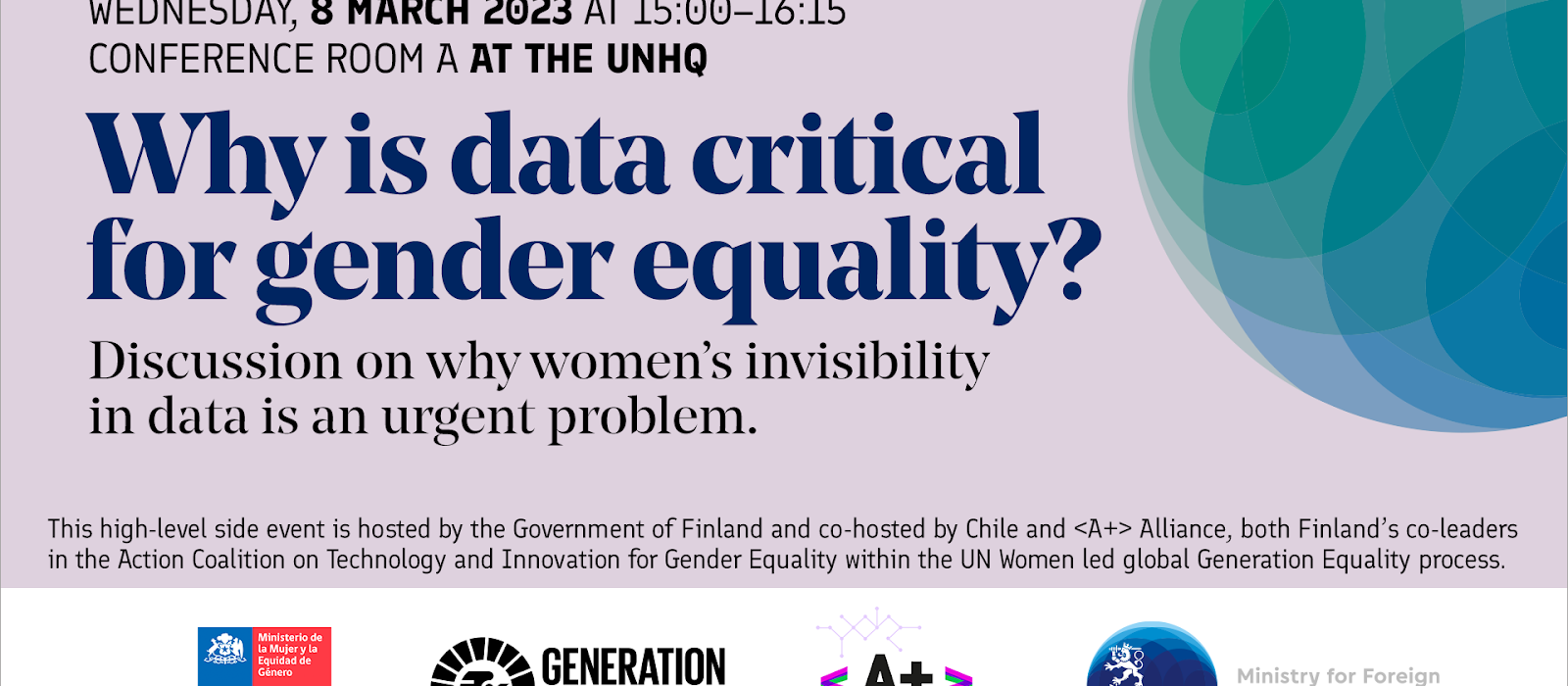Why is data critical for gender equality?
A Discussion on why women’s invisibility in data is an urgent problem
Now is the time for gender-transformative digital policies
– Mr. Thomas Blomqvist, Minister for Nordic Cooperation and Equality, Finland
The vision for human rights-based and gender-transformative data governance policies
– Ms. Ilze Brands Kehris, Assistant Secretary-General for Human Rights, OHCHR
– Dr. Amandeep Singh Gill, Secretary-General’s Envoy on Technology, United Nations
– Ms. Åsa Regner, Deputy Executive Director, UN Women (Sarah Hendriks, Director for Policy, Programme and Intergovernmental Division)
– Ms. Paula Ingabire, Minister of ICT & Innovation, Rwanda (TBC)
Reducing the gender digital divide through international cooperation in data (video message) – Ms. Jutta Urpilainen, Commissioner for International Partnerships, European Commission
Panel discussion: How to improve gender equality through and within data
– Ms. Anita Peña Saavedra, Head, International Affairs Department, Ministry of Women and Gender Equality, Chile
– Ms. Kate Behncken, Corporate Vice President, Microsoft Philanthropies
– Ms. Caitlin Kraft-Buchman, Co-Founder, A+ Alliance
Moderated by Ambassador for Innovation Ms. Riitta Swan, Finland
Data forms a basis for digital economies and societies. If data collected is not representative, the result can be for example health services that do not take into consideration gender-related questions such as pregnancy and menstrual health, or the fact that women are 47 % more likely than men to be seriously injured in a car crash because the car crash-test dummies are based on the average male. Simultaneously, the possible real-life inequalities represented in data must be averted before use. Recruitment systems have been shut down after they were discovered to replicate and amplify discriminating against women in recruitment. Sex-disaggregated, representative data is needed to develop services that take into account the needs of women and girls in all their diversity.
For technology to benefit everyone, a gender-transformative approach must be taken into the design, development, deployment and evaluation of technologies, platforms and tools as well as relevant policies, programs, and regulation. AI must be used in a way that leads to solutions that are gender-transformative, inclusive, safe and secure, and does not reproduce the eventual gender biases, stereotypes and discriminatory social norms of the data or offline world.
Background: In the UN Women led global Generation Equality process,the side event is hosted by the Government of Finland and co-hosted by Chile and the <A+> Alliance, both Finland’s co-leaders in the Action Coalition on Technology and Innovation for Gender Equality.
The Action Coalition is committed to globally bridging the gender gap in digital access and competences, investing in feminist technologies and innovation, building new inclusive innovation ecosystems, and preventing and eliminating online and tech-facilitated gender based violence and discrimination.
Last modified: February 28, 2023
